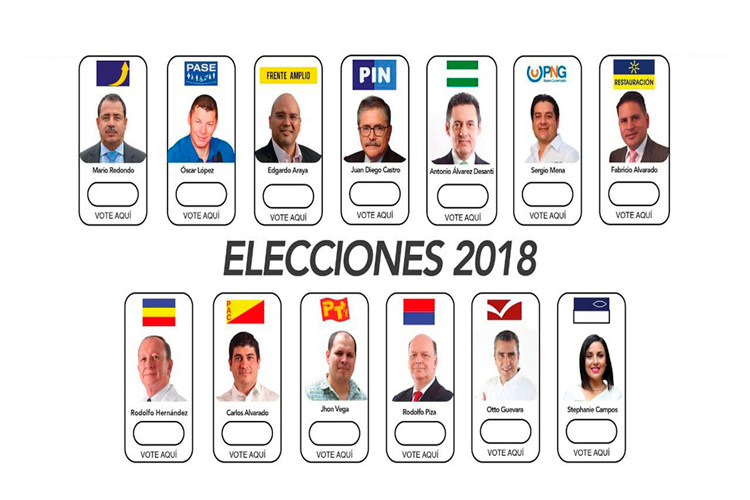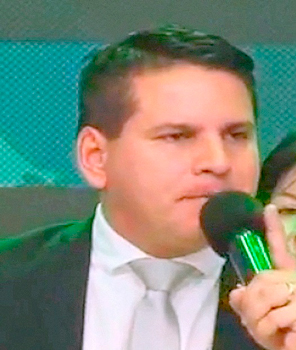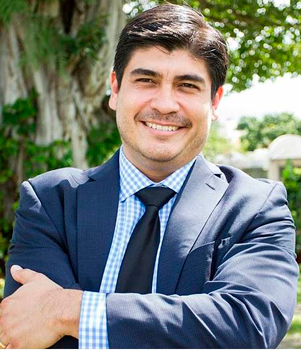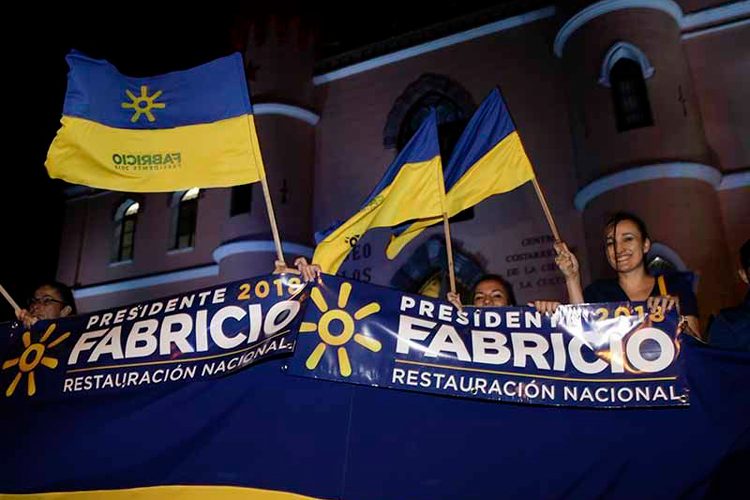The citizens of Costa Rica elect a new president every four years, and 2018 is one of those years. The first round of elections took place on February 4, 2018. The second-round, or runoff, election between the two candidates with the most votes will be held on April 1 to determine the ultimate winner.
Now, in between the two rounds, news coverage and discussions about the candidates and their politics are inescapable in the Central American country. This election is a decisive one for the nation, with controversial issues such as same-sex marriage carrying lots of weight.
How elections work
Costa Rica’s presidential elections use a modified two-round system, with many of the country’s several political parties entering a candidate chosen through their own internal elections or primaries. In the general elections in February, citizens head to their polling places to cast their votes for president.

The thirteen candidates who ran for president in the first round. Ejerza un voto responsable y hágalo de la manera adecuada | via http://costaricaazul.com
This year, thirteen parties entered candidates in the first round of elections.
To win in this first round, a candidate must receive at least 40 percent of the vote. If no candidate receives this amount, the two candidates with the highest percentages of votes face off in a runoff election two months later.
Setting the stage: corruption, religion and surprise rulings
Heading into this election year, Luis Guillermo Solís of the center-left Citizens’ Action Party (PAC) has served as president since 2014. His party has come under criticism in the past year due to its members’ alleged involvement in a 2017 corruption scandal, known to the public as “Cementazo.” Solís himself has denied involvement in the scandal.
Also important to understand about Costa Rica at this point in time is the profound effect religion has on politics and public opinion. Under the current constitution, Roman Catholicism is the state’s official religion, but freedom of religion is guaranteed as well.
Nevertheless, church and state are not separated in the country’s government. In recent years, the percentage of the population that identify as Catholic has hovered around 70 percent, with Evangelicals making up the second largest religious group.
With such a strong Catholic presence, LGBT rights and same-sex marriage have always been hot-button issues in the country. That’s why a January ruling on the matter by Inter-American Court of Human Rights came as a shock to the nation. The Court ruled that all the countries that signed the American Convention on Human Rights adopted in 1969 must allow same-sex marriage. Costa Rica is one of those countries.
Also important to note is that the ruling came less than a month before the first-round elections. Let’s meet the two candidates who won that round, and then we’ll get to why the timing is crucial here.

Fabricio Alvarado Muñoz | losepe
The two remaining candidates: Alvarado and Alvarado
Yes, they have the same last name.
Name: Fabricio Alvarado
Party: National Restoration (PRN)
Home State: San José
Percentage of vote won in first-round election: 24.78%
Fabricio Alvarado, who received the highest amount of votes, is an Evangelical Christian preacher and singer and former journalist who represents the conservative National Restoration Party. He currently serves in the Legislative Assembly representing his home province of San José.
Name: Carlos Alvarado

Carlos Alvarado Quesada en 2015 | Presidencia de la República de Costa Rica
Party: Citizens’ Action (PAC
Home State: San José
Percentage of vote won in first-round election: 21.74%
Carlos Alvarado of the more progressive Citizens’ Action Party came in second place. He is a writer and journalist who also has an extensive background in politics, having served as Costa Rica’s Minister of Labor and Social Security in the past.
Same-sex marriage takes center stage
Over the course of his campaign, Fabricio has always been outspoken about his views against same-sex marriage and abortion, and he ran on a “pro-family values” platform. However, running under the name of a small party, he had only three percent of voter support in polls in December 2017.
Then, the same-sex marriage ruling was announced.
Fabricio reacted by stating that, if he were elected, he would remove Costa Rica from the Convention, therefore avoiding the Court’s ruling. A couple weeks later, his voter support in the polls rose to 17 percent.
Carlos’ success in the first round was also a surprise, as early polls did not show much voter support for him. His party, PAC, was still associated with last year’s corruption scandal.
However, Carlos is outspokenly in favor of LGBT rights and same-sex marriage, announcing his support for the Court’s ruling soon after it came out. He, too, moved up in the polls following his reaction to the news.
Now, it is not to say that same-sex marriage was the only factor driving the surprising results of the first-round election. However, Costa Rican media outlets seem to agree that the Court’s timely ruling polarized citizens on the issue. And they seemed to vote for the candidates who shared their own opinions on the topic.
Now, the people of Costa Rica are left to choose between two seemingly opposite candidates in the runoff election. The candidate who wins will be able to decide the fate of same-sex marriage in the country, which is crucial in a time when many other Latin American countries have been becoming increasingly more accepting of LGBT rights.
As of February 24, polls showed Fabricio as the favorite among decided voters, with 57 percent support from those voters.
How to stay up-to-date on what’s next
You don’t have to live in Costa Rica to stay up-to-date on the upcoming events of this decisive election. Although media outlets around the world are covering it, I would recommend following online news sources based in the country in order to get more comprehensive and accurate information.
Here are some sources—both in English and Spanish—that I recommend:
The Costa Rica Star: The English-language online publication regularly publishes the results of new polls and updates on the election in its Politics section. You can also keep updated on their Facebook & Twitter here.
The Tico Times: Another online publication, The Tico Times regularly publishes articles on the election, along with investigative pieces on important issues in the country. You can also keep updated on their Facebook & Twitter here.
La Nación: The San José-based newspaper’s website is filled with Spanish-language content on the election. Many interesting viewpoints can also be found in the Opinión section. You can also keep updated on their Facebook & Twitter here.

